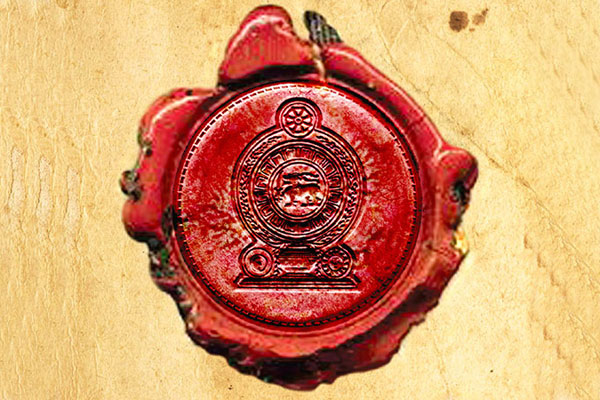
Several of Sri Lanka’s state-run financial institutions are not a burden on the people following reforms in the late 1990s and early 2000s.
“There are SOEs not in financial sector providing goods and services that are loss-making, which are funded by the tax payer’s money,” Deputy State Enterprises Development Minister Eran Wickremaratne said.
“So the legitimate question does arise, ‘Why should the tax payer bear the brunt of it when the actually the state enterprises should be to provide goods and service at the highest possible quality and the lowest possible price?’ And that is the reason state enterprises should exist.”
“There may be some state enterprises that exist because a decision has been made that that that particular enterprise needs to be owned by the government. That may be the exception.”
“I think the difference this government is making by creating a state enterprise development, we need to look at reducing the burden on the tax payer and the Treasury.
One of the worst examples of a state owned enterprise that is a burden on the people is SriLankan Airlines, which has been running 20 to 30 billion rupees of losses a year which was financed with capital injections and Treasury guarantees which have to be borne by the people.
People have to pay higher taxes in money terms or the very poor patients are indirectly taxes by being forced to sleep on the ground in state hospitals despite having terminal diseases like cancer, when money is diverted to sustain loss-making SOEs.
Ousted President Mahinda Rajapaksa, who re-nationalized SriLankan Airlines and Litro Gas with public money, claimed that privatization was a bitter pill and analysts agree it is a bitter pill for politicians who enjoy the benefits of state enterprises.
A series of fraud has already been uncovered in both agencies.
SriLankan was not a burden on the people under Emirates management but it has run losses of over 100 billion rupees after it was forced out by the Rajapaksa regime.
Politicians use state enterprises to put their henchmen as directors and many measure the value of their portfolio by the number of entities and the number of directors that they can appoint, even if the agency is a zombie kept alive with capital injections and Treasury guarantees.
Ministers also use commercial enterprises to appoint consultants, overstaff them and appoint relatives to top positions. They also use SOE resources for their benefit.
Unlike government departments, SOEs have looser financial controls making it easier for vehicles to be re-assigned to the line ministry, advertising budgets re-directed and tenders bent, critics say.
Wickremaratne said the new ministry is not simply on track to privatize entities, but will carefully look at each agency.
“Our ministry is going to look at each and every institution,” he said.
“There is no dogma, here. “We will look at each institution on its merits, and understand the industry and come up with a solution, to reach that goal. I don’t think there is a one size fits all solution in dealing with SOEs.”
Sri Lanka wants to study Singapore’s Temasek and Malaysia’s Khazanah which is used as holding companies to manage SOEs.
He says a first step is to find a way to protect the agencies from arbitrary interference.
“Temasek and Khazzah both needs to be looked at in detail,” Wickremaratne said.
“The way the SOEs are presently structure is that the government owns it. If the government is owning and government is managing it then you could an entity which is insulated in actually managing it.”
He said several East Asian nations including China and Vietnam are following various models to reduce the burden of SOEs.
Analysts say Vietnam is a following a model involving wholesale listing of SOEs and giving death penalties and long jail terms for managers of loss-making enterprises.
economynext

0 comments